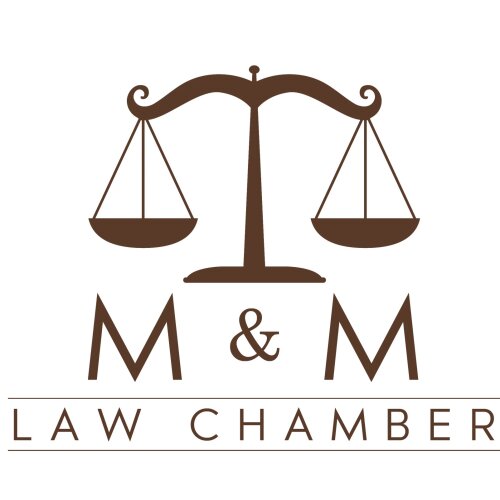Best Sanctions & Export Controls Lawyers in Guwahati
Share your needs with us, get contacted by law firms.
Free. Takes 2 min.
List of the best lawyers in Guwahati, India
About Sanctions & Export Controls Law in Guwahati, India
Sanctions and export controls are essential legal and regulatory frameworks that govern the movement of goods, technologies, and services across national borders. In Guwahati, located in the strategically significant North-East region of India, these laws play a crucial role given the city's proximity to international borders and its increasing involvement in cross-border trade and commerce. Sanctions are laws or regulations imposed by the government to restrict trade with specific countries, entities, or individuals, usually for reasons related to national security, foreign policy, or international obligations. Export controls, on the other hand, dictate what items, technology, or information can be transferred out of the country, especially if they have potential dual-use or security implications.
Why You May Need a Lawyer
There are several scenarios in which individuals, businesses, or organizations in Guwahati might require legal assistance with sanctions and export controls. Common situations include:
- Entering into import-export contracts with international partners, especially those in regions subject to sanctions.
- Exporting goods or technologies that may have dual-use applications (both civilian and military).
- Ensuring compliance with the latest amendments to Indian export control laws and international obligations.
- Facing investigation or enforcement action by government regulatory bodies for alleged violations of export or sanctions regulations.
- Needing advice on international transactions involving border countries such as Bangladesh, Bhutan, and China.
- Seeking clearances for exporting sensitive goods like chemicals, electronics, software, or defense-related equipment.
- Understanding what items or transactions are restricted or require special permission from authorities.
Legal experts specializing in this field can help you navigate complex documentation, licensing requirements, risk assessments, and negotiations with government agencies.
Local Laws Overview
In Guwahati, as part of India, sanctions and export controls are governed by a mix of national legislation and administrative regulations. Key frameworks include:
- The Foreign Trade (Development and Regulation) Act, 1992: Empowers the government to regulate imports and exports, including issuing or canceling licenses.
- The Customs Act, 1962: Governs import and export procedures, seizures, and penalties for contraventions.
- India's SCOMET List: The Special Chemicals, Organisms, Materials, Equipment and Technologies (SCOMET) list outlines specific items subject to export control due to potential national security risks.
- Sanctions notifications from the Directorate General of Foreign Trade (DGFT): These provide rules on dealings with sanctioned countries, individuals, or entities.
- International treaties and obligations: India is committed to various multilateral export control regimes, such as the Wassenaar Arrangement and the Missile Technology Control Regime.
In addition, Guwahati’s border proximity makes enforcement by local customs, border security, and police authorities more significant compared to other inland cities. Regional businesses must also be vigilant about smuggling risks and cross-border compliance when dealing with neighboring countries.
Frequently Asked Questions
What is the SCOMET List, and how does it affect exporters in Guwahati?
The SCOMET List is a catalogue of items regulated under Indian export control laws, including special chemicals, organisms, materials, equipment, and technologies. Exporting any item listed requires special permission from the DGFT. Businesses in Guwahati dealing in high-technology or sensitive sectors need to check if their goods are on this list before exporting.
Can I export goods to a country that is under Indian sanctions?
Generally, trade with sanctioned countries is prohibited or strictly regulated. There may be exceptions for specific types of humanitarian goods, but engaging in any trade with sanctioned countries without proper authorization can result in severe penalties.
What types of goods are typically controlled under export regulations?
Typically controlled goods include defense items, dual-use technology, sensitive chemicals, electronics, software with encryption features, and certain biological materials. Exporters must check current regulations and seek legal advice for clarification.
What are the penalties for violating export controls or sanctions in Guwahati?
Violations can result in heavy fines, seizure of goods, suspension or revocation of licenses, and in severe cases, imprisonment. Both individuals and organizations can be held liable.
How do I obtain an export license in Guwahati?
Exporters must apply to the Directorate General of Foreign Trade, providing detailed documentation about the goods, destination, and end-use. The process can be complex, especially for SCOMET items or exports to sensitive countries, making legal guidance highly valuable.
Is technology transfer subject to export controls?
Yes. The export or sharing of certain technologies, including through emails, cloud storage, or collaboration with foreign entities, may be subject to controls depending on its classification under SCOMET or other regulations.
How often do export control laws change?
Export control laws and sanctions regimes can change rapidly in response to global political developments. It is crucial for exporters and businesses to stay updated through official notifications and seek legal consultations regularly.
Are there regional restrictions specific to Guwahati and the North-East?
While national laws apply uniformly, increased customs and border enforcement in the North-East region, including Guwahati, means stricter oversight. Informal cross-border trade risks are also higher, making compliance and documentation critical.
Can NGOs or individuals be affected by sanctions and export controls?
Yes. NGOs working in regions or with groups under sanctions, or individuals seeking to export certain items or transfer funds, may also need to comply strictly with these regulations.
What steps should I take if I am notified of a potential violation?
Immediately consult a lawyer specializing in sanctions and export controls. Do not attempt to resolve the issue with authorities on your own, as statements or incorrect actions could complicate matters further.
Additional Resources
For help and further information, consider contacting or consulting the following:
- Directorate General of Foreign Trade (DGFT) Regional Office, Guwahati
- Customs Department, Guwahati
- Federation of Indian Export Organisations (FIEO), North-East Chapter
- Assam Chamber of Commerce
- Local Export Promotion Councils
- Professional law firms with experience in international trade and export controls
These bodies provide advisory services, official notifications, training seminars, and connections to approved legal experts in this field.
Next Steps
If you require legal assistance with sanctions or export controls in Guwahati:
- Document all facts related to your case or query, including contracts, invoices, correspondence, and any government notices you have received.
- Identify if your goods, services, or technology are listed under any export control regime or are subject to existing sanctions.
- Contact a qualified lawyer or firm experienced in sanctions or export control law within the region.
- Arrange a consultation to review your specific situation and receive tailored advice on compliance or defense.
- Stay informed of regulatory updates by periodically checking announcements from the DGFT, Customs, or relevant industry associations.
Acting proactively, seeking professional advice, and maintaining strict compliance are the best ways to avoid legal complications in sanctions and export controls in Guwahati, India.
Lawzana helps you find the best lawyers and law firms in Guwahati through a curated and pre-screened list of qualified legal professionals. Our platform offers rankings and detailed profiles of attorneys and law firms, allowing you to compare based on practice areas, including Sanctions & Export Controls, experience, and client feedback.
Each profile includes a description of the firm's areas of practice, client reviews, team members and partners, year of establishment, spoken languages, office locations, contact information, social media presence, and any published articles or resources. Most firms on our platform speak English and are experienced in both local and international legal matters.
Get a quote from top-rated law firms in Guwahati, India — quickly, securely, and without unnecessary hassle.
Disclaimer:
The information provided on this page is for general informational purposes only and does not constitute legal advice. While we strive to ensure the accuracy and relevance of the content, legal information may change over time, and interpretations of the law can vary. You should always consult with a qualified legal professional for advice specific to your situation.
We disclaim all liability for actions taken or not taken based on the content of this page. If you believe any information is incorrect or outdated, please contact us, and we will review and update it where appropriate.









